by Rona | Apr 30, 2021 | KPFA, Podcasts, Radio Shows
Listen now to the 5/3/21 show on KPFA.org—94.1FM
Epigenetics is the study of how our lifestyle, behaviors, and the environment we live in can cause changes that affect the way our genes work. It used to be thought that our DNA rigidly determines our health, but scientists have confirmed that the vast majority of our genes are actually fluid and dynamic. Our gene expression is a powerful part of our overall health, and the more you understand this complex topic the more empowered you will be to influence your health and longevity.
Guest
Dr. Kenn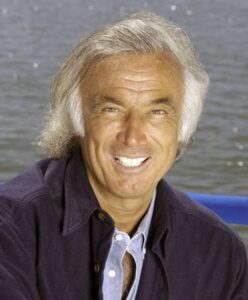 eth R. Pelletier, PhD, MD is a clinical professor of medicine at the UCSF School of Medicine and former clinical professor of medicine at the Stanford School of Medicine. He is also Chairman of the American Health Association and is a vice president with American Specialty Health. At the UCSF School of Medicine, he is the Director of the Corporate Health Improvement Program (CHIP), a research program between CHIP and fifteen Fortune 500 corporations. Dr. Pelletier has authored numerous books (over 13) including international bestseller, Mind as Healer, Mind as Slayer, and his 2018 book, Change Your Genes Change Your Life. He is a peer reviewer for several medical journals including the Journal of Occupational and Environmental Medicine and serves on a number of corporate boards. He has published over 300 professional articles and has appeared on ABC, CBS, CNN, NBC, and the BBC to discuss his research.
eth R. Pelletier, PhD, MD is a clinical professor of medicine at the UCSF School of Medicine and former clinical professor of medicine at the Stanford School of Medicine. He is also Chairman of the American Health Association and is a vice president with American Specialty Health. At the UCSF School of Medicine, he is the Director of the Corporate Health Improvement Program (CHIP), a research program between CHIP and fifteen Fortune 500 corporations. Dr. Pelletier has authored numerous books (over 13) including international bestseller, Mind as Healer, Mind as Slayer, and his 2018 book, Change Your Genes Change Your Life. He is a peer reviewer for several medical journals including the Journal of Occupational and Environmental Medicine and serves on a number of corporate boards. He has published over 300 professional articles and has appeared on ABC, CBS, CNN, NBC, and the BBC to discuss his research.
To learn more and get a free copy of his book, Change Your Genes Change Your Life, go to https://drpelletier.com.
by Rona | Dec 31, 2020 | KPFA, Podcasts, Radio Shows
During this time of heightened stress and uncertainty, are you feeling good about your body, energy, and overall well-being? How is your mood, and do you turn toward food for comfort? There are ways to get back in touch with what nourishes you and helps you stay well in body and mind. There is no “One size fits all” formula for health. We are all different, and finding ways to tap into our body’s wisdom can be transformative.
Listen Now to the 1/4/21 show on About Health on KPFA.org—94.1FM
Guests:
 Valerie Tookes is a National Board-Certified Health and Wellness Coach (NBC-HWC) and an ICF Professional Certified Coach (PCC) who believes that trusting your body’s deepest wisdom, equals true health. Her work is devoted to helping women transform their world by changing the way that they see their body. She works as a Health and Wellness Coach with The Women’s Vitality Center in Berkeley; and as a Lead Coach with the online Courageous Living Coach Certification Program. A graduate of Florida State University, University of Oregon, California Institute for Integral Studies, and the Institute for Integrative Nutrition, she happily lives in Oakland with her new rescue kitty Austin. To find out more go to https://womensvitalitycenter.com/
Valerie Tookes is a National Board-Certified Health and Wellness Coach (NBC-HWC) and an ICF Professional Certified Coach (PCC) who believes that trusting your body’s deepest wisdom, equals true health. Her work is devoted to helping women transform their world by changing the way that they see their body. She works as a Health and Wellness Coach with The Women’s Vitality Center in Berkeley; and as a Lead Coach with the online Courageous Living Coach Certification Program. A graduate of Florida State University, University of Oregon, California Institute for Integral Studies, and the Institute for Integrative Nutrition, she happily lives in Oakland with her new rescue kitty Austin. To find out more go to https://womensvitalitycenter.com/
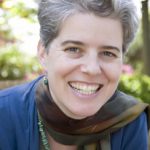
L. Rebecca (Reba) Connell, LCSW, (LCS 19814) Is a Certified Mental Health Integrative Medicine Professional, who teaches Mindfulness-based Stress Reduction (MBSR) and Nourish Your Mood: Meditation and Eating with the Brain in Mind classes. She is deeply engaged with science-based and traditional approaches to healing through food and self-care. She is a graduate of Brown University, where she focused on multicultural women’s issues, and UC Berkeley, where she researched the connection between depression and pain in women at UCSF. Finding mindfulness, movement, and food to make big differences in her own healing from chronic pain, she feels called to share what she is learning with others and to help people make their own discoveries. While focused on studying food for mood, sleep, and pain, she accidentally learned about the latest developments in the science of nutrition.You can find out more at http://www.centerforstressreduction.com.
by Rona | Nov 26, 2017 | Announcements, Appearances, KPFA, Podcasts, Radio Shows

Listen now to our show from 11/27/17, on KPFA.org 94.1FM
Being unhoused makes it difficult, and in some cases impossible, to access general health services. Poor health, addiction, mental illness, and violence are some things that lead to homelessness, and homelessness can make all of these things worse.
The majority of adults that experience homelessness have more than one health issue. They range from hypertension and diabetes to HIV and viral hepatitis, but the most significant reasons people go to emergency-rooms are mental illness and addiction. The sick and vulnerable become homeless, and the homeless become sicker and more vulnerable.
Guests:
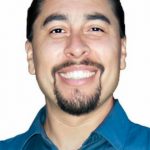 Alejandro Soto-Vigil comes from a family of activists in the Bay Area. Last year he was re-elected to his second term on the Berkeley Rent Stabilization Board. After 8 years working in the City of Berkeley as a legislative aide, Alejandro now serves as the program manager for the Berkeley Drop-In Center, an organization that has served Berkeley’s homeless residents for over 25 years. Alejandro majored in political sciences at UC Berkeley.
Alejandro Soto-Vigil comes from a family of activists in the Bay Area. Last year he was re-elected to his second term on the Berkeley Rent Stabilization Board. After 8 years working in the City of Berkeley as a legislative aide, Alejandro now serves as the program manager for the Berkeley Drop-In Center, an organization that has served Berkeley’s homeless residents for over 25 years. Alejandro majored in political sciences at UC Berkeley.
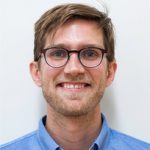 Jeffrey Seal is the medical director and interim director of Alameda County Health Care for the Homeless, as well as an Assistant Clinical Professor in the UCSF Department of Psychiatry. He has worked at the Child Psychiatry Branch of the National Institute of Mental Health. He completed his medical degree at Boston University, a psychiatry residency at UCSF, and a chief residency at San Francisco General Hospital. He grew up on the Gulf Coast of Alabama, and currently lives in Oakland CA. He is a current California Health Care Foundation Leadership fellow and has special interests in public health systems, social determinants of health, re-entry populations, and trauma.
Jeffrey Seal is the medical director and interim director of Alameda County Health Care for the Homeless, as well as an Assistant Clinical Professor in the UCSF Department of Psychiatry. He has worked at the Child Psychiatry Branch of the National Institute of Mental Health. He completed his medical degree at Boston University, a psychiatry residency at UCSF, and a chief residency at San Francisco General Hospital. He grew up on the Gulf Coast of Alabama, and currently lives in Oakland CA. He is a current California Health Care Foundation Leadership fellow and has special interests in public health systems, social determinants of health, re-entry populations, and trauma.
by Rona | Jan 11, 2017 | Announcements, KPFA, Podcasts, Radio Shows
If you missed the January 16th show on KPFA about The Roots of Health Disparities you can hear it now at https://kpfa.org/player/?audio=251021
 “Of all the forms of inequality, injustice
“Of all the forms of inequality, injustice
in health care is the most shocking and
inhuman.”
—Dr. Martin Luther King Jr.
“Decades of racially discriminatory policies have marginalized people of color in every way, including in areas of housing, transportation, education, employment, and health. In spite of civil rights laws passed 50 years ago—people of color still face barriers on nearly every quality-of-life measure.”
—”Health Equity As a Critical Civil Rights Issue,” PolicyLink, 2015
GUESTS:
Dr. Muntu Davis is the Public Health Department Director and County Health Officer in Alameda County, California. He advises the County Board of Supervisors, local government agencies, and community members and organizations on medical and public health issues and on the development and implementation of public health policy and practices. He also provides oversight, strategic direction, and fiscal management of the department and all of its divisions. He joined the ACPHD in October 2005. Prior to working Alameda County, he worked in the Immunization Branch of the California Department of Health Services on pandemic planning and education on febrile rash evaluation. He also practiced medicine in urban and rural primary care and urgent care clinics in Northern and Southern California. He held multiple positions at the Continuity of Instruction to Reinforce Our Children’s Learning Environment (C.I.R.C.L.E.) program at the Tom Bradley Elementary School including co-director and member of the board of directors. Dr. Davis completed a residency in Family Medicine at Presbyterian Intercommunity Hospital in Whittier, California. He completed The California Endowment Scholars in Health Policy Fellowship and received his Master of Public Health degree from Harvard School of Public Health.
Dalila Butler, Associate Director, works with the PolicyLink Center for Health Equity and Place to promote social, economic and health equity through environmental and policy change, particularly in low-income communities and communities of color. Dalila serves as the California Department of Public Health Office of Health Equity Advisory Committee Chair. She also provides technical assistance to communities across the country and supports research and writing for health team projects. She supports the Boys and Men of Color team by working with networks in advancing policy and practice to advance equity in the areas of health, education, employment, and juvenile justice. Prior to joining PolicyLink, Dalila supported health equity projects at Prevention Institute. She holds a B.S. in Chemical Engineering from North Carolina State University and a Masters in Public Health from San Diego State University.
by Rona | Oct 13, 2016 | Announcements, KPFA, Podcasts, Radio Shows
Tune in now if you missed the show on KPFA

Over 29 million people in the United States have diabetes. In adults 20 and older, more than one in every 10 people suffers from diabetes, and in seniors that figure rises to more than one in four. Type 2 diabetes represents 90-95 percent of all diabetes cases.
People can reduce the complications of diabetes by getting support, good medical care, and learning how to make some lifestyle changes.
Guests:
Harry McIlroy, MD is an integrative 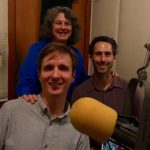 physician certified with the Institute for Functional Medicine. Before medical school and completion of residency at Contra Costa Regional Medical Center, Harry had a background in nutrition and obtained a Master’s in acupuncture and Chinese medicine. He strives to provide patients with health tools that empower them to improve their well being.
physician certified with the Institute for Functional Medicine. Before medical school and completion of residency at Contra Costa Regional Medical Center, Harry had a background in nutrition and obtained a Master’s in acupuncture and Chinese medicine. He strives to provide patients with health tools that empower them to improve their well being.
Michael Beda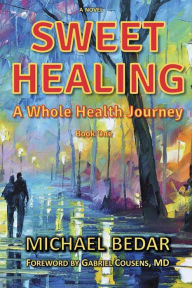 r, MA, is Co-Director of the East Bay Healing Collective, and author of, Sweet Healing, A Whole Health Journey. He also helped found the project that became the documentary film”Reversing Diabetes in 30 Days.” As a storyteller, speaker, spiritual counselor, and author, his work has inspired people to be honest about their experience of being blocked in their health, and move into wellness practices.
r, MA, is Co-Director of the East Bay Healing Collective, and author of, Sweet Healing, A Whole Health Journey. He also helped found the project that became the documentary film”Reversing Diabetes in 30 Days.” As a storyteller, speaker, spiritual counselor, and author, his work has inspired people to be honest about their experience of being blocked in their health, and move into wellness practices.
 eth R. Pelletier, PhD, MD is a clinical professor of medicine at the UCSF School of Medicine and former clinical professor of medicine at the Stanford School of Medicine. He is also Chairman of the American Health Association and is a vice president with American Specialty Health. At the UCSF School of Medicine, he is the Director of the Corporate Health Improvement Program (CHIP), a research program between CHIP and fifteen Fortune 500 corporations. Dr. Pelletier has authored numerous books (over 13) including international bestseller, Mind as Healer, Mind as Slayer, and his 2018 book, Change Your Genes Change Your Life. He is a peer reviewer for several medical journals including the Journal of Occupational and Environmental Medicine and serves on a number of corporate boards. He has published over 300 professional articles and has appeared on ABC, CBS, CNN, NBC, and the BBC to discuss his research.
eth R. Pelletier, PhD, MD is a clinical professor of medicine at the UCSF School of Medicine and former clinical professor of medicine at the Stanford School of Medicine. He is also Chairman of the American Health Association and is a vice president with American Specialty Health. At the UCSF School of Medicine, he is the Director of the Corporate Health Improvement Program (CHIP), a research program between CHIP and fifteen Fortune 500 corporations. Dr. Pelletier has authored numerous books (over 13) including international bestseller, Mind as Healer, Mind as Slayer, and his 2018 book, Change Your Genes Change Your Life. He is a peer reviewer for several medical journals including the Journal of Occupational and Environmental Medicine and serves on a number of corporate boards. He has published over 300 professional articles and has appeared on ABC, CBS, CNN, NBC, and the BBC to discuss his research.
 Valerie Tookes is a National Board-Certified Health and Wellness Coach (NBC-HWC) and an ICF Professional Certified Coach (PCC) who believes that trusting your body’s deepest wisdom, equals true health. Her work is devoted to helping women transform their world by changing the way that they see their body. She works as a Health and Wellness Coach with The Women’s Vitality Center in Berkeley; and as a Lead Coach with the online Courageous Living Coach Certification Program. A graduate of Florida State University, University of Oregon, California Institute for Integral Studies, and the Institute for Integrative Nutrition, she happily lives in Oakland with her new rescue kitty Austin. To find out more go to
Valerie Tookes is a National Board-Certified Health and Wellness Coach (NBC-HWC) and an ICF Professional Certified Coach (PCC) who believes that trusting your body’s deepest wisdom, equals true health. Her work is devoted to helping women transform their world by changing the way that they see their body. She works as a Health and Wellness Coach with The Women’s Vitality Center in Berkeley; and as a Lead Coach with the online Courageous Living Coach Certification Program. A graduate of Florida State University, University of Oregon, California Institute for Integral Studies, and the Institute for Integrative Nutrition, she happily lives in Oakland with her new rescue kitty Austin. To find out more go to 

 Alejandro Soto-Vigil comes from a family of activists in the Bay Area. Last year he was re-elected to his second term on the Berkeley Rent Stabilization Board. After 8 years working in the City of Berkeley as a legislative aide, Alejandro now serves as the program manager for the Berkeley Drop-In Center, an organization that has served Berkeley’s homeless residents for over 25 years. Alejandro
Alejandro Soto-Vigil comes from a family of activists in the Bay Area. Last year he was re-elected to his second term on the Berkeley Rent Stabilization Board. After 8 years working in the City of Berkeley as a legislative aide, Alejandro now serves as the program manager for the Berkeley Drop-In Center, an organization that has served Berkeley’s homeless residents for over 25 years. Alejandro Jeffrey Seal is the medical director and interim director of Alameda County Health Care for the Homeless, as well as an Assistant Clinical Professor in the UCSF Department of Psychiatry. He has worked at the Child Psychiatry Branch of the National Institute of Mental Health. He completed his medical degree at Boston University, a psychiatry residency at UCSF, and a chief residency at San Francisco General Hospital. He grew up on the Gulf Coast of Alabama, and currently lives in Oakland CA. He is a current California Health Care Foundation Leadership fellow and has special interests in public health systems, social determinants of health, re-entry populations, and trauma.
Jeffrey Seal is the medical director and interim director of Alameda County Health Care for the Homeless, as well as an Assistant Clinical Professor in the UCSF Department of Psychiatry. He has worked at the Child Psychiatry Branch of the National Institute of Mental Health. He completed his medical degree at Boston University, a psychiatry residency at UCSF, and a chief residency at San Francisco General Hospital. He grew up on the Gulf Coast of Alabama, and currently lives in Oakland CA. He is a current California Health Care Foundation Leadership fellow and has special interests in public health systems, social determinants of health, re-entry populations, and trauma. “Of all the forms of inequality, injustice
“Of all the forms of inequality, injustice
 physician certified with the Institute for Functional Medicine. Before medical school and completion of residency at Contra Costa Regional Medical Center, Harry had a background in nutrition and obtained a Master’s in acupuncture and Chinese medicine. He strives to provide patients with health tools that empower them to improve their well being.
physician certified with the Institute for Functional Medicine. Before medical school and completion of residency at Contra Costa Regional Medical Center, Harry had a background in nutrition and obtained a Master’s in acupuncture and Chinese medicine. He strives to provide patients with health tools that empower them to improve their well being. r, MA
r, MA